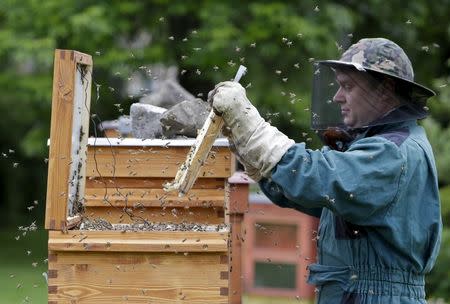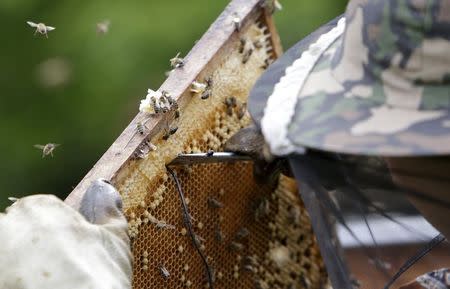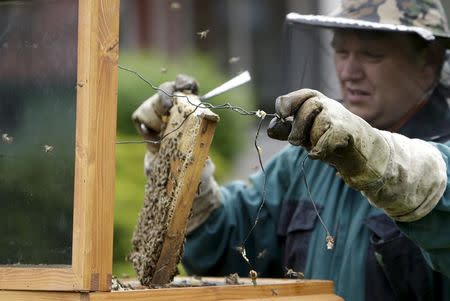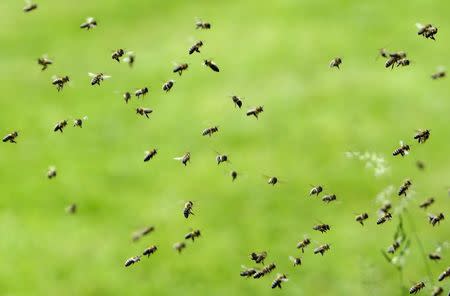Czech teacher battles bee-killing disease with hot hive
By Robert Muller CHRUDIM, Czech Republic (Reuters) - Scientists battling a bee-killing disease are about to start testing a new weapon -- a sun-heated hive designed by a Czech high school teacher. Roman Linhart told Reuters he had secured a patent for his invention after 10 years of research into ways of wiping out varroosis disease, which has been destroying bee colonies across the world. The stakes are high, as the death of bees threatens harvests which rely on the insects for pollination. The teacher at Chrudim's Secondary School of Agriculture, 120 km (75 miles) east from Prague, joins a line-up of experts who have been trying to find an efficient way to tackle the condition for decades. Experts from Czech Republic's Palacky University said they were about to start trialing Linhart's method -- which aims to kill the Varroa destructor parasite responsible for the disease by heating up hives to 40 degrees Celsius (104 F) and higher. "Scientific probes will be performed in the summer. Some beekeepers have tested the method and it had the declared parameters," said Professor Vitezslav Bicik, of the university's zoology department. Bee keepers have tried using heat before. But their efforts have been hampered by difficulties in powering the heating units in often remote locations and making sure the bees themselves are not harmed by the high temperatures. Up to now they have often resorted to removing the entire population before heating the hive, a tricky and time-consuming procedure. Linhart, a bee keeper himself, said he got round the problems by using just the power of the sun for his thermosolar hive, and a technique that heats the hive through the glass top for about two hours. According to the plans, the heat slowly builds up in black-painted metal sheets inside the insulated hive, paralyzing, sterilizing and eventually killing the mites but leaving the bees unharmed. "With this, you can take 100 hives, or as many as you have, and work simultaneously on all of them," Linhart said. (Reporting by Robert Muller; Editing by Michael Roddy and Andrew Heavens)





